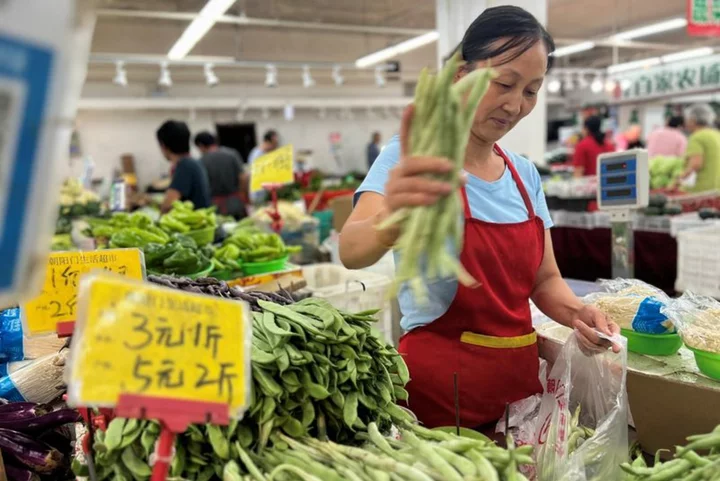By Sophie Yu and Yew Lun Tian
BEIJING At Nanchengxiang restaurants in Beijing, customers treat themselves to a breakfast buffet with three types of rice porridge, sour and spicy soup, and milk - all for the price of 3 yuan ($0.40).
"Many good, cheap choices popped up during the pandemic," said 71-year-old Gao Yi, while sharing breakfast with his grandson in one of the chain's 160 outlets in the Chinese capital.
"Not all of them last. But there are new good deals all the time, you just have to go out to find them."
That's what deflation looks like in China.
Poor consumer appetite is fuelling a price war among lower-end restaurant chains in China, which analysts say could harm smaller businesses struggling to keep up with discounts offered by bigger players.
As witnessed by Japan in the 1990s, deflation - if prolonged - can weigh on economic growth.
"Good deals are needed to get consumers through the door so there is a lot of pressure on these businesses to find margins," said Ben Cavender, managing director at China Market Research Group in Shanghai.
Unlike in Western countries, Chinese people were left largely to fend for themselves financially during the pandemic, with government support directed mainly toward the manufacturing sector. Once the restrictions were lifted, there was no immediate consumer splurge as some economists had predicted.
With wages and pensions hardly budging and the job market highly uncertain, spending appetites are limited, and in a barely growing economy, confidence is low.
"Discount strategies, offering consumers a more value-for-money choice, match the current economic situation," said Zhu Danpeng, a food and beverage analyst and deputy head of the Guangdong Provincial Food Safety Promotion Alliance.
The central Nanchengxiang outlet was packed on Thursday, as it has been every morning since the 3 yuan deal was launched in May, according to staff. The company did not respond to Reuters' questions about their profit margins and business strategy.
Xishaoye, a Beijing-based burger franchise, has also advertised lower prices, with staff saying some items will be as cheap as 10 yuan. Yum China, the operator of KFC in the country, is luring customers with a burger, snack and drink menu for 19.9 yuan.
"Traffic is back, but spending per person has dropped," Joey Wat, Yum's chief executive officer, told Reuters.
"In our minds the pandemic seems like it happened a long a time ago. It actually hasn't. People need time to adjust."
Restaurant worker Dong went to a wet market in central Beijing around lunchtime on Thursday, but did not buy anything.
"I have a housing mortgage and a kid. I have no choice but to be more prudent," said Dong, 33, who only gave his last name for privacy reasons.
($1 = 7.2115 Chinese yuan)
(Reporting by Sophie Yu, Yew Lun Tian; Editing by Marius Zaharia and Sam Holmes)

